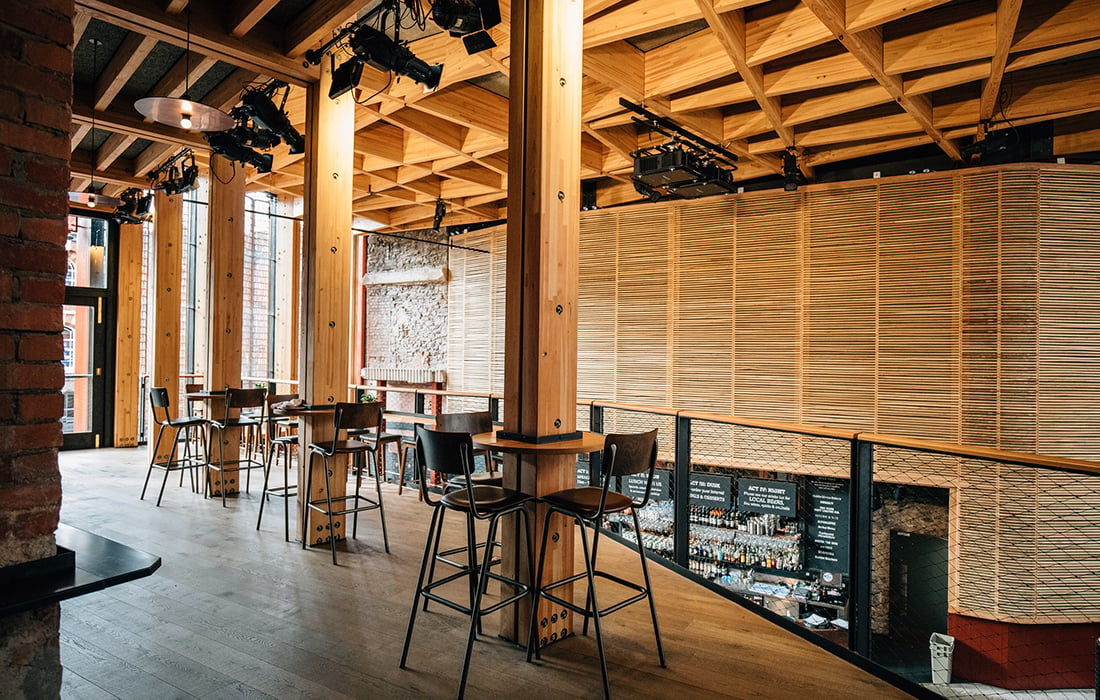
Theatre buildings: places of opportunity with welcoming spaces for all
Photo: Ashlyn G on Flickr (CC BY-ND 2.0)
A better space
Covid has given us a chance to imagine a new kind of future for our theatres, but without big goals we will be hostages to fortune rather than agents of change. Alan Dix shares his wish list.
The Covid pandemic has created the most extraordinary cultural emergency, with closed theatres, furloughed staff, insolvencies and thousands at risk of redundancy, but in the past week the picture has changed dramatically, with the lifesaving combination of a £1.57bn DCMS intervention and the third wave of Arts Council Response funding. But, as Sarah Brigham pointed out in the Guardian, the devil is in the detail. Even as Rishi Sunak announced his multi-billion economic cash injection he said “hardship lies ahead” and when our theatres finally reopen they will be facing months and years of adaptation and readjustment.
Right now every theatre, every cultural venue, is ripping up its business plan and starting over. Assumptions made a few months ago now look prehistoric. Audience behaviour is unpredictable, fundraising optimism looks laughable and the understanding of social distancing in a venue is almost nonexistent. The core business of a theatre must always be to create amazing experiences, so let’s stop pretending that ambitious commercial targets will plug funding gaps.
Covid has given us a chance to imagine a new kind of future for our theatres. It is time to recalibrate. Everyone knows that change will come, times will be tough and doing things differently with less resources will be challenging, but reassembling the past is no longer an option. We need to think beyond tomorrow, so here is a wish list of sorts. It may seem overambitious, it may seem obvious, but without big goals we will be hostages to fortune rather than agents of change.
Put our buildings to work
Let’s use our buildings to make room for the workforce of tomorrow by filling our foyers and corridors with free workspace and giving over meeting rooms and rehearsal spaces to people who need to shape a project. Theatres can offer mentoring and business support, provide the broadest broadband, develop new digital capabilities and give access to networks of professional talent. The artists and makers of tomorrow must thrive through a share of the resources available, and let’s make sure they are representative of contemporary Britain.
We can turn theatres into places of real opportunity and make them a valued resource for a civil, more equal, society that supports our communities. Let’s create welcoming places where groups can meet, that are places of refuge and safety, that are both hearth and crucible. Let's develop narratives that make people’s lives relevant and considered.
Put Creative Learning front and centre
Children and young people have lost so much in this crisis. They have been cooped up and kept in for too long and their learning has suffered as a result. Let’s ramp up the work that we do in schools, take learning out to our communities and find new ways of engagement far from our buildings that explore shared aspirations and confound the strictures of the National Curriculum. The voices of young people and future generations must be heard in every corner of the land.
Tear down barriers
In the midst of lockdown something extraordinary happened: Black Lives Matter shook the global consciousness. But it’s not just statues that are symbols – barriers that deny access to people of colour, to people whose heritage is not recognised, whose history is not taught and whose lives are not valued must also be pulled down. Unspoken assumptions that inform creative and organisational decisions must be challenged on a continuing basis. Without it, the people who have always had influence in the creative sector will remain the same. It doesn’t need to be a war, but it must be determined and lasting, with actions that result in permanent change.
Decarbonise the sector
If we don’t take the long view, then none of the above will amount to a hill of beans and we will be doomed by our own complacency. So let’s go for the thing that should be top of the list. Fossil free survival depends on a more equal world where everyone benefits from carbon reduction, not just the most privileged. Let’s put carbon consciousness at the centre of everything we do – the work we make and the stories we tell. Let’s commit to a carbon neutral sector and stick to it.
The aftermath of Covid-19 will see fierce ideological battles over the way societies and economies are best run. I would like to think that theatre can offer ways of working that are visible alternatives to the predominant narratives of the past 30 years. It is time to tell new kinds of stories that propose a more just, more sustainable and more equal world.
Alan Dix is the Artistic Director of 509 Arts, based in Bradford.
He is Chair of Hull Truck Theatre, a Board member of Leeds Playhouse and Chair of Time and Tide Bell, and has worked in the creative sector for over 40 years.
[email protected]
Join the Discussion
You must be logged in to post a comment.